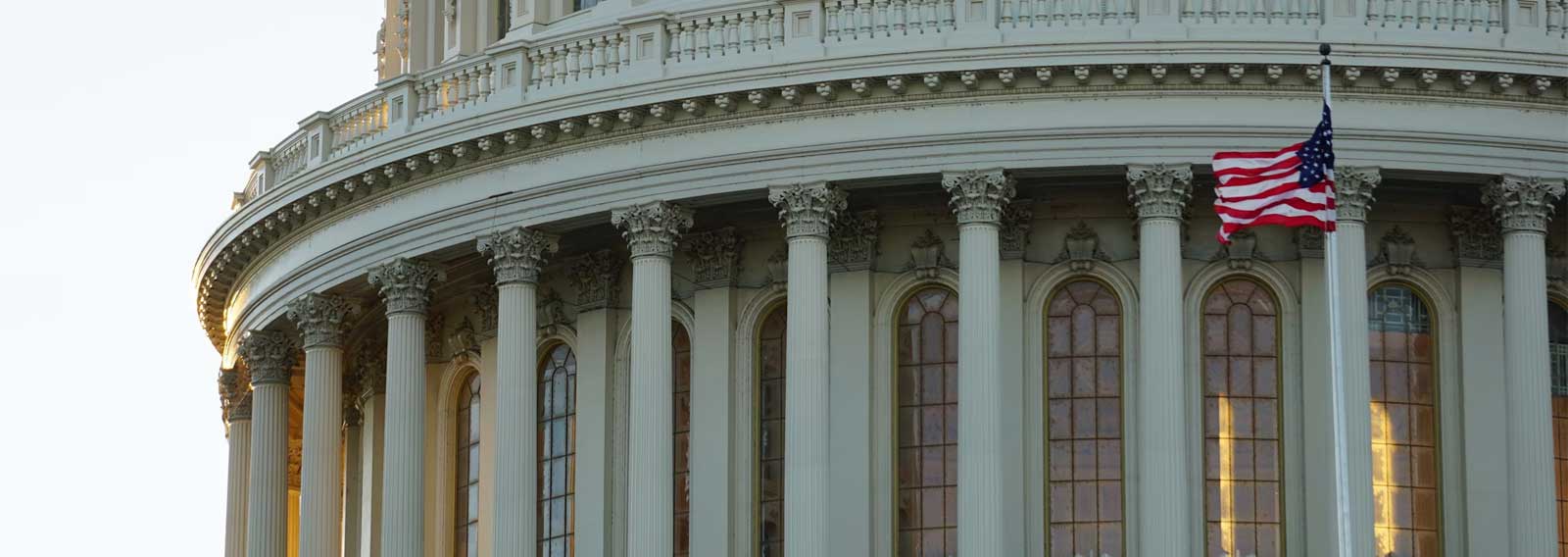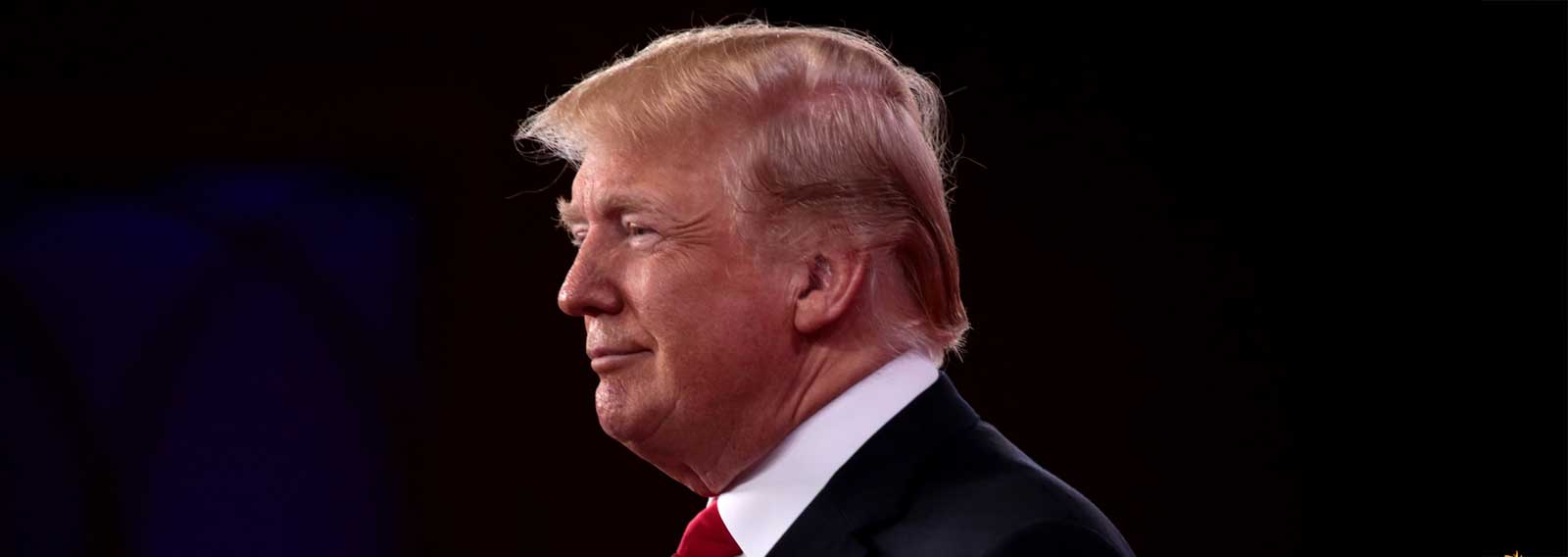DC Talk’s 1995 hit “What If I Stumble?” starts with someone reading these lines: “The greatest single cause of atheism in the world today is Christians who acknowledge Jesus with their lips, then walk out the door and deny Him by their lifestyle. That is what an unbelieving world simply finds unbelievable.” Like it or not, true Christians have to deal with the consequences of the professing church. Many unbelievers look at the professing church’s lack of faithfulness and conclude that such is what true Christianity is.
As such, for many a true follower of Jesus, the response of the professing evangelical and even Reformed church during the coronavirus has been one of the most discouraging and disheartening parts of this whole year. Dealing with government overreach, media-induced fear, and hysteria without end would have been bad enough. But the one place where Christians should have been able to find refuge was in the church. There, believers should have found a different spirit—a spirit of faith and trust, and courage. A spirit of freedom and peace. Believers should have been able to point to the church—the called out ones—and said to a watching world, “Behold, there is something otherworldly, something different from the world.” Sadly, that wasn’t the case for most churches. Uncertainty, fear, cancellations of fellowship, mask requirements, and social distance regulations thrived in the church just as much as in the world.
I’ve entitled this “A COVID Apology to the World, on Behalf of the Evangelical Church.” This is what I believe the professing evangelical and Reformed church should say to the world. And, of course, she should not only say it but change course accordingly.
The Apology (7 parts):
We’re sorry. We had a once-in-a-lifetime opportunity to show you how different Christianity is from the world. And we failed.
Years ago, Leonard Ravenhill said, “The world out there is not waiting for a new definition of Christianity; it’s waiting for a new demonstration of Christianity.” The COVID debacle of 2020-2021 was the perfect opportunity for us to give you that new demonstration of Christianity. We could have shown you what it means to live a life free from fear. We could have shown you what it means to value spiritual things more than material things. We could have shown you that Christians are different. Instead, most evangelical churches acted just like the world. Our profession of faith made little difference in our lives. Our churches closed their doors just like the Lion’s Club and community BINGO night. It’s too late for us now to change how we responded. But the least we can do is say that we’re sorry.
We’re sorry we contradicted so much of what we had told you previously. Prior to the coronavirus, we told you that it was vital for Christians to gather together and fellowship. We preached about passages such as Hebrews 10:25: “not neglecting to meet together, as is the habit of some, but encouraging one another, and all the more as you see the Day drawing near.” We told you about Christians throughout church history who were willing to meet despite the dangers of persecution, oppression, and even death. We held these men and women up as examples of faithfulness. And then, when the coronavirus struck us, we scattered like sheep without a shepherd. Forgive us.
Prior to the coronavirus, we told you that living for Christ was worth more than anything this world could offer, including safety, health, and prosperity. We told you about Christians—going all the way back to the apostles—who truly understood the gospel and were willing to give up everything to follow Jesus. We told you about the missionaries and housewives, preachers and plowboys, who were willing to die if they could only read the Scripture. We told you that obedience to Christ was not an optional part of discipleship, but the very essence of following Jesus. And then, when it was going to cost us something to stand for Jesus and stand against the world, we crumbled like a house of cards. Forgive us.
We’re sorry we perverted the glorious and beautiful blessing of Christian fellowship. We neglected fellowship. For some of us, it didn’t even take one week for us to cancel fellowship. We dressed it up with a lot of explanations and qualifications, but the bottom line is that we told everyone to stop meeting together as a church body. We did not accurately demonstrate the doctrine of Christian fellowship. We made Christianity look no different than a social club or sports league, willing to cancel gatherings on the word of a pagan tyrant.
But even worse than abandoning Christian fellowship, we perverted fellowship. We encouraged you to think that Christians view “online” events as gatherings, fellowship, or services. This is all a gross perversion of what God intended for the church. We know that none of these things are fellowship, but we continued to act as if they were. To our shame, when we finally found some courage to meet (or, if we’re honest, when the state allowed us to meet), we continued to enforce mask and distancing mandates. We showed that we really don’t care if true fellowship occurs—where believers can interact with one another, see each other’s faces, and act as family—we really only cared about continuing to present a façade of Christianity. We did have good motives and intentions. But the road to hell is paved with good intentions. Truth be told, we caved to the pressure. Our actions are a stain upon the true church’s testimony concerning the doctrine of Christian fellowship.
We’re sorry we conformed to the world. Christians are supposed to look different from the world. The fear that characterizes so much of our world, amplified to the extreme during the coronavirus, is unbecoming for a true Christian church. We know that we have been charged to not be conformed to this world (or “age,” see Romans 12:2). However, we found the temptation too strong and the potential cost too high for us to have our minds transformed during the coronavirus. Instead of standing as a city upon a hill as a light for a lost, confused, and scared world, we acted just like everyone else. Just like the pagans in the plagues of the second and third centuries, we encouraged you to stay away from others.
We understand if you now view Christianity as simply a pie-in-the-sky religion that has no real practical consequences for life. We lived as if that was the case. You might not believe us now—and we can hardly blame you based on how we have responded—but that’s not true Christianity.
We’re sorry we made our faithful brothers and sisters—those churches that stood firm from the very beginning of the COVID lockdowns—look like outliers. While most of the professing church conformed to the world’s thinking, a faithful remnant of congregations did not soil their garments with the fear and paranoia of the world. These congregations are worthy of godly admiration. But even when we had these godly examples right before our very eyes, we made them look like the extremists. We told you that we were doing the loving thing by not allowing the church to meet together. We made it look as if the true churches were unwise, unloving, and uncharitable. We made it look like those churches that followed God’s Word and honored the individual’s conscience were fools. We showed you that forcing congregants to wear masks and stay away from each other was the “loving” thing. We’re sorry. We simply didn’t have the courage or the backbone to make such a stand. Part of us admired those churches that actually lived out the Christian faith, but we just felt much more comfortable in the safe place of conformity to the world. We preferred hearing, “Well done, good and faithful servant,” from our governor than from the Lord Jesus Christ.
We’re sorry we misrepresented Christianity. We made it so painfully easy for you to misunderstand Christianity. We made it shamefully confusing as to what a true church really is. We made Christianity look like another version of worldliness and humanism. We did this because we based our decisions not on God’s Word, but on the shifting sands of the culture around us. We took the powerful, courage-inducing message of Christianity, and, like cowards, we hid it in the sand. We made physical safety and political correctness more important than the spiritual wellbeing of souls headed for an eternity in either heaven or hell. The message of the gospel is that your soul is of far greater value than anything in this life. Instead of faithfully proclaiming that message, we shamelessly peddled an insipid and effeminate version of Christianity. That is not what Christianity is. What you saw from the vast majority of professing churches was worldliness. We’re sorry we didn’t have the strength to show you true Christianity.
We’re sorry we made Christianity look like a pansy religion that causes her adherents to be unwilling to face the consequences for faithfulness. We had centuries of godly examples of faithfulness to God’s Word despite serious consequences and we simply ignored them. We made it seem like our situation—with a virus which has an incredibly low death rate—was worse than anything that has come before us. We pretended that our situation was so “unprecedented” that the worthy examples of church history could be admired but not emulated. We pretended the coronavirus was worse than the plague that occurred in Germany when Luther was unwilling to stop meeting with believers. We acted as if it was worse than the outbreak the Asiatic cholera in London when Spurgeon kept meeting with Christians. We admit that was just an easy way for us to avoid the cost of discipleship. We have done a really good job of looking to church history for motivation, but we have done a really bad job of following in their footsteps.
But even more than the examples of church history, we had God’s precious Word and the everlasting gospel. True Christianity causes people to be willing to suffer the consequences for faithfulness to Jesus. The true church is composed of those who are willing to suffer loss for the sake of Jesus (Mark 9:34-38) and those who love “not their lives even unto death” (Revelation 12:11). True Christianity involves “counting the cost” (Luke 14:25-33). It is a message which is so powerful and beautiful and moving that its followers will “count everything as loss because of the surpassing worth of knowing Christ Jesus” (Philippians 3:8). We pretended like we still believed that. We pretended like we would still lay down our lives for Jesus if we had to, all the while we were unwilling to even meet with fellow believers because we might get sick or fined. Sometimes, it’s a lot easier to say you’d die for Jesus, than it is to actually live for him.
Martin Luther said, “A religion that gives nothing, costs nothing, and suffers nothing, is worth nothing.” We presented Christianity as a religion that gives nothing, costs nothing, suffers nothing, and is worth nothing. We’re sorry. That is not true Christianity.
We’re sorry that, even after a year of this, we continue to misrepresent what actually happened. Our evangelical leaders continue to write things like, “Approximately one year ago, North America was hit with the COVID-19 pandemic. Its impact has been so devastating that we’ll only know the full extent years from now. We lost the ability to worship corporately for a time” (emphasis added). We’re sorry we keep perpetuating this lie. We know it’s not actually true. We didn’t lose the ability to worship any more than first-century Christians in Rome lost the ability to worship because they could be thrown to the lions or burned alive as human torches. We didn’t lose the ability to worship any more than the 16th-century Separatists lost the ability to worship because the crown forced them to attend state-sanctioned services.
We’re sorry we keep presenting it like this, but it is just so much easier for us to tell ourselves that this was beyond our control and we were “forced” to no longer follow God’s clear command. It’s easier for us to keep telling ourselves that we did the right thing, and we had “no choice” but to follow the government’s mandate than it is for us to acknowledge that we sinned. Again, we’re sorry. We continue to mispresent not only the Christian doctrine of following Jesus and the fellowship of the saints, but also repentance.
We had so many good things to say to you and to share about the gospel, but we simply chose not to live them out. It wasn’t forced upon us. We had the ability to continue to meet, but we chose to fall in line with the world. We presented Christianity as if it is no different than any other social club. We have no grounds now to critique those “worldly churches” that provided “online services” prior to the coronavirus. We have no grounds now to critique a shallow, take-it-or-leave-it approach to true Christian fellowship.
The message we offered during the coronavirus was cheap. It cost us nothing, it asked nothing of you, and it offered nothing to the watching world. It’s painful to say it, but the world would have been better off without most professing churches during the past twelve months. She would have been better served by a small remnant of those faithful churches, accurately representing Christianity, who believed in Jesus and were willing to face the consequences for that belief.
Jesus once warned his followers about the scribes and Pharisees. He said this: “The scribes and the Pharisees sit on Moses’ seat, so practice and observe whatever they tell you—but not what they do. For they preach, but do not practice” (Matthew 23:2-3). That’s us: the leaders of the professing evangelical and Reformed church. By and large, we preached one thing for years. And then, when the rubber met the road, we did something else. Please, take Jesus’ advice regarding the scribes and Pharisees and apply it to us. Please don’t do what we did. Please don’t emulate us. We preached to you, but we didn’t practice. We told you of the glorious gospel of Jesus, and the infinite worth of faithfulness to Jesus, no matter the cost, and then we capitulated, without even a fight. We listened to the voice of Fauci instead of the voice of the Shepherd. Our church leaders acted beyond the authority granted them and told their congregants that they could not gather as a corporate body, and when they could, that they had to wear masks.
Unless you saw one of those true churches that stood on God’s Word—unwilling to cancel fellowship, unwilling to force her congregant to cover their faces and stay away from each other like pagans during a plague—then what you saw this past year was not Christianity. It was worldliness dressed up in Christian garb. True Christianity offers you something different than the world does, but true Christianity will cost you. And there will be consequences.
What you saw from most of the professing church was a fearful and cowardly display of the fear of man and the love of this world. If you are willing, please give us another chance. And if we continue to act as we did, without acknowledging how we sinned and admitting our fear, than go find a group of Christians that are willing to face the music for the faithfulness. Find a group of Christians who will meet together as followers of Jesus, without covering their faces in fear. Find a group of Christians who live out their faith. There you will find true Christianity.
This article was originally published at Reformed Hope. It was initially delivered in the form of a sermon, available on SermonAudio. To read more about the coronavirus and the gathering of the church, read Chris’ book Essential Service, available as a free download here.





















You must be logged in to post a comment.